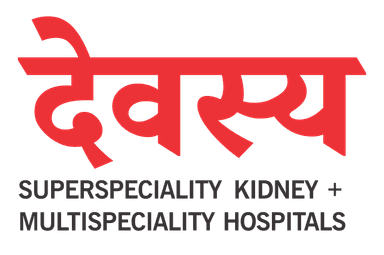Rectal Cancer Treatments & Surgery
How Devasya Hospital helps to cure rectal cancer?
Devasya Hospital offers a comprehensive range of surgical options for rectal cancer treatment. For early-stage tumors, they provide polypectomy and local excision, minimizing invasiveness and promoting quicker recovery. Transanal excision is available for small tumors close to the anus. Advanced techniques like Transanal Endoscopic Microsurgery (TEM) ensure precise tumor removal. For cases requiring removal of a portion of the rectum, Low Anterior Resection (LAR) and Proctectomy with colo-anal anastomosis are performed to preserve bowel function. Abdominoperineal Resection (APR) is available for lower rectal tumors. In complex cases involving nearby organs, Devasya offers Pelvic Exenteration. Moreover, they employ diverting colostomy to reduce post-surgery complications. With their expertise and patient-centered approach, they provide the best rectal cancer treatment to the patients. Being the best hospital for rectal cancer surgery, Devasya Hospital provides optimal treatment for rectal cancer surgery.
FAQs
The exact cause of rectal cancer is not always known, but several risk factors can increase the likelihood of developing the disease. These risk factors include age (the risk increases with age), a personal or family history of colorectal cancer or polyps, inflammatory bowel disease (such as ulcerative colitis or Crohn's disease), a diet high in processed meat and low in fiber, sedentary lifestyle, obesity, smoking, and excessive alcohol consumption.
To diagnose rectal cancer, various tests and procedures are utilized. These may include a digital rectal exam (DRE) to feel for abnormalities, imaging tests like CT scans, MRI, or PET scans to visualize the rectum and surrounding structures, colonoscopy or sigmoidoscopy to directly view and biopsy the tumor, blood tests to check for specific markers, and sometimes a biopsy of the lymph nodes or other affected areas to determine the extent of cancer spread.
Early signs and symptoms of rectal cancer may include changes in bowel habits, such as persistent diarrhea or constipation, rectal bleeding or blood in the stool, abdominal pain or discomfort, unexplained weight loss, fatigue, and a feeling that the bowels are not fully emptying after a bowel movement. It is essential to consult a healthcare professional promptly if these symptoms are noticed, as they can also be caused by other conditions.
Managing side effects during rectal cancer treatment is crucial for the patient's well-being. Patients should communicate openly with their medical team about any side effects experienced. The healthcare team can provide supportive care measures, medications, or lifestyle recommendations to alleviate side effects such as nausea, fatigue, pain, and changes in bowel habits. Nutritional support and counseling may also be beneficial during treatment.
Rectal cancer and its treatment may lead to various complications depending on the stage and extent of the disease and the chosen treatment options. Common complications include bowel obstruction, bowel perforation, incontinence, sexual dysfunction, and complications related to colostomy or ostomy if one is created. In advanced cases, metastases to other organs can occur, leading to further complications.
Although some risk factors for rectal cancer cannot be changed, certain lifestyle modifications can help reduce the risk. Maintaining a healthy diet rich in fruits, vegetables, and fiber while limiting processed and red meats, adopting a physically active lifestyle, avoiding smoking, and moderating alcohol consumption can all contribute to a lower risk of developing rectal cancer. Regular screening and early detection through colonoscopies can help identify and remove polyps before they become cancerous, potentially preventing the development of rectal cancer.



